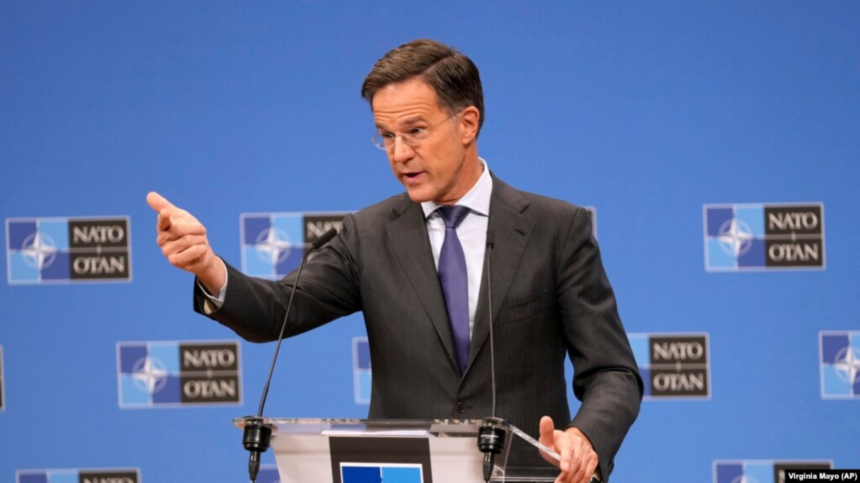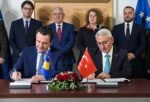NATO Secretary General Mark Rutte called for those responsible for the November 29th attack on the Ibër-Lepenc water canal in northern Kosovo to be held accountable, emphasizing the fragile stability in the Western Balkans.
Speaking at a press conference in Brussels with Montenegrin Prime Minister Milojko Spajić, Rutte highlighted the severity of the attack, which targeted a critical infrastructure facility that provides water to several cities and power plants in Kosovo. The explosion, reportedly caused by around 20 kilograms of explosives, was described by local authorities as the most significant attack on Kosovo’s infrastructure since the 1998/1999 war.
Kosovo’s authorities are investigating the blast and have accused Serbia of being behind it, although Serbia has denied the allegations and is conducting its own investigation.
Rutte stressed the importance of uncovering the facts behind the attack, emphasizing the need for a transparent and thorough investigation. He also expressed his appreciation for KFOR’s rapid deployment of troops to protect Kosovo’s critical infrastructure in the wake of the attack.
“We remain committed to ensuring that KFOR fulfills its UN mandate,” Rutte stated. KFOR, which currently has around 4,700 troops, is responsible for Kosovo’s security, alongside the Kosovo Police and the European Union Rule of Law Mission, EULEX.
U.S. Ambassador to Kosovo Jeffrey Hovenier also commented on the attack, noting that while there is currently no evidence pointing to the perpetrator, he believes that proof will eventually surface. He reiterated that the U.S. government is not yet in a position to identify those responsible.
Legal and security experts agree that identifying the perpetrators is critical, and they argue that international involvement, particularly by the EU and the United States, would increase the credibility of the investigation and help de-escalate tensions. Mark Ellis, executive director of the International Bar Association, supported the idea of an independent investigation, saying it is necessary to prevent the situation from escalating further.
The Ibër-Lepenc canal, which supplies water from Lake Ujman, provides essential water to northern Kosovo, including the Mitrovica and Pristina regions, as well as the Kosovo Energy Corporation (KEK) for cooling its power plants. While the explosion did not disrupt KEK’s water supply, it caused temporary water shortages in other parts of the country.
The call for a thorough investigation into the attack comes as tensions continue to rise in the region, with the international community urging all parties to work together to find a peaceful resolution.
Source: Radio Free Europe







